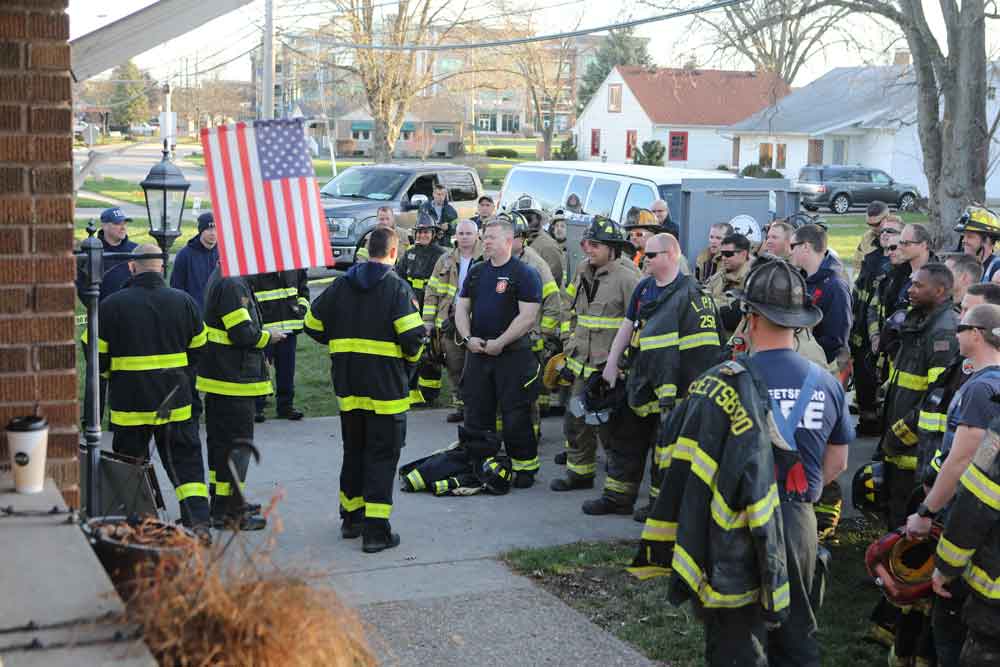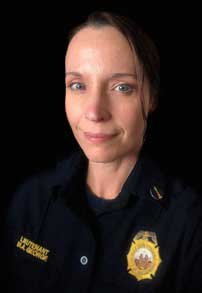
By Mandy George
It is an age-old story in departments everywhere: firefighters run calls with attention to detail in the daily tasks of apparatus check off, documentation, fire suppression, and EMS. Station life is what they love and they have dinner table discussions about what could make the department better: new equipment, modern apparatus, and wouldn’t it be nice if the department could hire a few more people to take the load off everyone else? Before they know it, someone mentions that there are programs to help departments get what they need and “would you be willing to help?” A way to get more people and a new engine? Of course! Before they know it, one firefighter is sitting in front of a computer slogging through pages and pages of five-syllable words on a federal government Web site.
ALSO
Pandemic Health Effects Underscore the Priority of AFG-Funded Physicals
Webcast: Writing a Successful Grant Proposal
Taking the First Steps for Grant Writing Success
The completion of a grant can appear to be an overwhelming task and it is! There are graduate degrees and certificates offered in grant writing. The targeted budget information, detailed equipment specifications, and locality demographics are only a few pieces of the total package required by non-profit organizations who offer assistance to departments. Larger grants applications, like the Federal Emergency Management Agency’s (FEMA) Assistance to Firefighters Grant (AFG) and Staffing for Adequate Fire and Emergency Response (SAFER), have multiple guidance documents online, require the creation of online accounts, and even have virtual workshop opportunities available to assist in the successful navigation of the federal grant system. How do firefighters manage this task? No differently than they manage any potentially overwhelming incident: through teamwork.
Get SANE
The completion of a successful grant does not have to be a one-person job. The needs of the department can be better captured if the work is delegated and a team is created using the following positions that will help keep the firefighter SANE: Subject matter experts, Administrative support, a Numbers expert, and an Essential tasks expert.
Subject matter experts: Each grant application is focused on specific items or goals that the department seeks to acquire or meet. It is possible for the grant writing firefighter to become an expert in all the areas each grant could cover, but that will take a great deal of time. Most departments already have members who are involved in the purchase of equipment, EMS goals, training initiatives, and human resource practices. It is also beneficial to the morale and transparency of a department to make use of the knowledge and enthusiasm of its members. Including subject matter experts from the department in the grant writing process is an effective way to accomplish all of those missions.
Administrative support: All grants will need approval and support from multiple levels of administration. The chain of command (COC) and policies related to seeking outside funding sources should always be followed. Along with the COC, the city or county level of administration may also need to approve the grant application. It would be unfortunate to put in all the work and then not receive the grant because department and local government policy was not followed. Be sure to secure the administrative support and include a policy expert on your team.
Numbers experts: Firefighters and EMS providers may be excellent at calculating nozzle pressures and medication doses, but most have little practice at obtaining and calculating the budgetary and demographic information necessary for grant writing. These numbers can be difficult to find. Sometimes they do not even exist and work must be done to obtain them before the grant process can move forward. This team member needs to be able to do research online, create surveys, contact vendors, contact members in other city departments, and ideally work closely with the department’s finance personnel. A successful grant will meet the needs of the department and the mission of the grantee organization. Fundamentally, this is the job of the numbers expert on your team.
Essential tasks expert: Essential tasks are the fundamentals of the grant itself. There are timelines to be met, accounts to be created, specific sections to be filled out and reviewed. This person, the essential tasks expert, is the organizational dynamo and the one who will keep everyone on track throughout the process. This person may create an e-mail group or even a text group to keep everyone on the same page and moving forward. If this is the first time the team is working on a grant, the essential tasks expert may set up a time for everyone to go through the virtual workshops specific to the grant, if available. They may also use a grant management software program to assist them through the phases of the grant cycle.
There are some grantee organizations with processes that would not require a complex management system for successful completion. Two or three pulse checks throughout the process may be enough to keep the team on track. FEMA and other larger grantee organizations, however, have more complex application and grant management processes. These would benefit from having a dedicated “incident commander” as an essential tasks expert to ensure all the benchmarks are met.
Overcoming Challenge
The first age-old task in the fire department is being tasked with the collateral duty. The second is making it happen successfully with few resources. So how do firefighters create teams to keep them SANE in small departments with few resources available? Thankfully, firefighters are masters at resourcefulness and can apply this to the grant writing process as well as to the fireground.
Talk to people: Ask about people’s interest’s and hobbies. Find out what other members’ collateral duties are. Find out if they are involved in other departments and if they are, how. There is likely a larger pool of expertise and interest in a circle of acquaintances than is visible at a passing glance. Talk to new people and ask them new questions. Team members may be ready to jump on board—they are just waiting to be asked.
Use Virtual Resources: One benefit of the COVID-19 pandemic has been the willingness of people and entities to use virtual resources at a higher level. Workshops, courses, and connections are available at the touch of a button. Reach out to the experts, to companies, to educational institutions, to other departments near and far. Find assistance and give assistance where possible. A network of focused expertise will develop even in departments with few dedicated grant writing personnel if virtual resources are used to their fullest potential.
Stay SANE
Firefighters don’t work alone on an incident and they shouldn’t work alone on something as important as a grant. They can get SANE and stay SANE with a team of subject matter experts, administrative support, numbers experts, and an essential task expert to ensure a smooth process and the best chance at grant approval.

Mandy George is a lieutenant in the Chesapeake (VA) Fire Department. She is a training officer who works with a strong team to facilitate the training needs of a 500-member department of sworn and civilian personnel. She has a master’s degree in emergency and disaster management, a master’s degree in professional writing, and an associate’s degree in emergency medical services. She is also a Nationally Registered Paramedic (NRP).
MORE MANDY GEORGE

